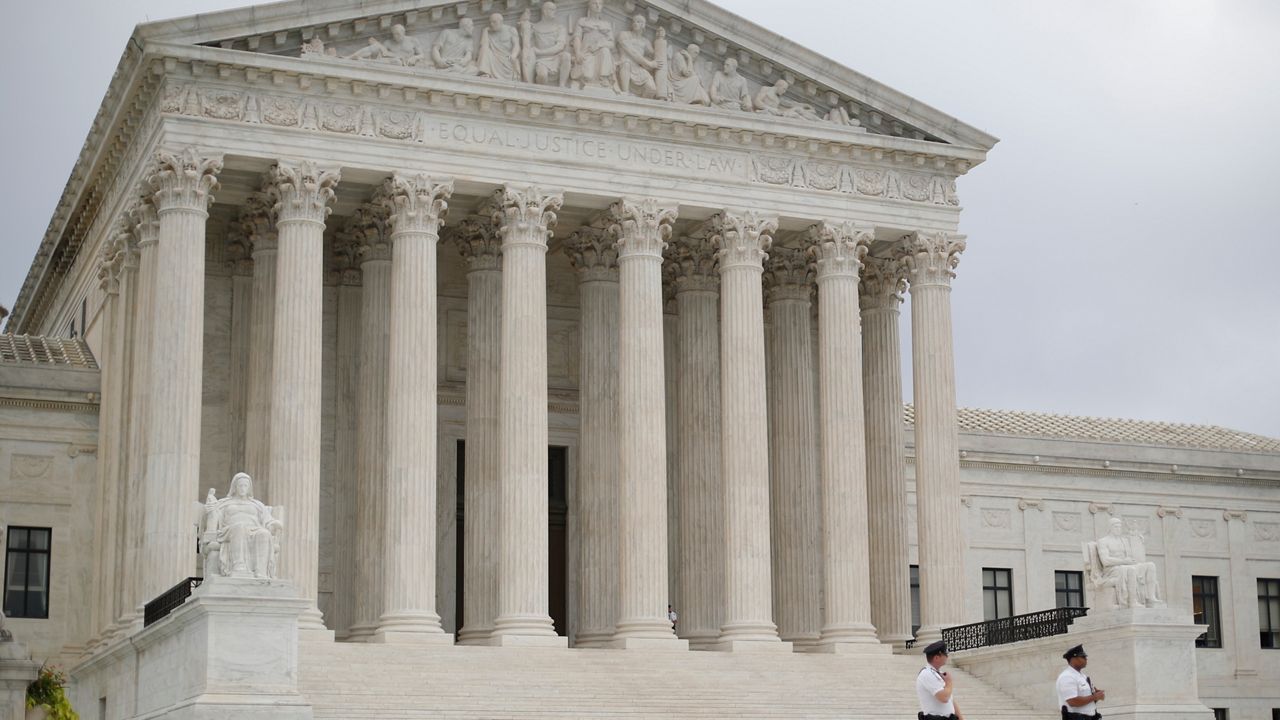The Senate Judiciary Committee on Thursday voted to advance a bill that would establish a new code of ethics for the Supreme Court – a Democratic push following a whirlwind few months filled with revelations about justices’ practices and conduct.
What You Need To Know
- The Senate Judiciary Committee voted to advance a new ethics code for the Supreme Court, an attempt to respond to recent revelations about justices' interactions with wealthy donors and others
- Republicans are strongly opposed, arguing the ethics bill could "destroy" the high court
- The legislation would impose new ethics rules on the court and a process to enforce them, including new standards for transparency around recusals, gifts and potential conflicts of interest
- Democrats first pushed the legislation after reports earlier this year that Justice Clarence Thomas participated in luxury vacations and a real estate deal with a top GOP donor
The legislation, the Supreme Court Ethics, Recusal, and Transparency Act, passed the committee 11-10 along party lines, with just Democrats backing the bill.
“Unlike every other federal official, Supreme Court justices are not bound by a code of ethical conduct,” Senate Judiciary Committee Chairman Dick Durbin, D-Ill., said to open the hearing. “They are the most powerful judges in America and yet, they are not required to follow even the most basic ethical standards.”
Republicans strongly oppose the move and it is unlikely to pass in the full Senate, where it would need nine GOP votes to overcome a filibuster. If the bill -- which Sen. John Kennedy, R-La., called "dead as fried chicken" on Wednesday -- did make it out of the upper chamber, it would still need to pass in the Republican-controlled House.
Iowa Sen. Chuck Grassley on Thursday argued the bill “usurps the constitution,” because it presents a “clear separation of powers issue.”
“This bill is not about oversight or accountability, it is about harassing and intimidating the Supreme Court,” Grassley said.
The legislation would require the court to establish a code of conduct within 180 days, impose new rules on disclosing gifts and set standards on justices’ recusing themselves from cases regarding potential conflicts of interest.
The focus on justices’ ethics first burst into public view following reports Justice Clarence Thomas participated in luxury vacations and a real estate deal with a top GOP donor.
Since then, news reports also revealed that Justice Samuel Alito had taken a luxury vacation with a GOP donor. The Associated Press reported last week that Justice Sonia Sotomayor, aided by her staff, has advanced sales of her books through college visits over the past decade.
Sen. Sheldon Whitehouse, D-R.I., on Thursday said the Supreme Court has been “captured by special interests.”
The legislation comes after years of increasing tension, and increasing partisanship, on the committee over the judiciary. Then-President Donald Trump nominated three conservative justices to the Supreme Court, all of whom were confirmed when Republicans were in the Senate majority and with considerable opposition from Democrats. The court, as a result, has shifted sharply to the right, overturning the nationwide right to an abortion and other liberal priorities.
Republicans on Thursday argued Democratic lawmakers’ dissatisfaction with recent Supreme Court decisions was driving their push for this bill.
Whitehouse shot back at comments over Democrats wanting to “pack” the high court because of the recent major controversial decisions.
“My sense is that the court has already been packed.” Whitehouse said on Thursday. “It has been packed as the result of a very long and expensive effort run by a handful of secretive right-wing billionaires.”
Some Democrats have proposed adding seats to the Supreme Court. President Joe Biden said last month expanding the court would be a mistake, arguing it could “politicize it, maybe forever, in a way that is not healthy."
Durbin had invited Chief Justice John Roberts to testify at a hearing, but he declined, saying that testimony by a chief justice is exceedingly rare because of the importance of preserving judicial independence. Roberts also provided a "Statement on Ethics Principles and Practices" signed by all nine justices that described the ethical rules they follow about travel, gifts and outside income.
While the rules were not new, the statement provided by Roberts said that the undersigned justices "reaffirm and restate foundational ethics principles and practices to which they subscribe in carrying out their responsibilities as Members of the Supreme Court of the United States."
Besides Sotomayor's push for book sales, the AP reported that universities have used trips by justices as a lure for financial contributions by placing them in event rooms with wealthy donors and that justices have taken expenses-paid teaching trips to attractive locations that are light on actual classroom instruction.



